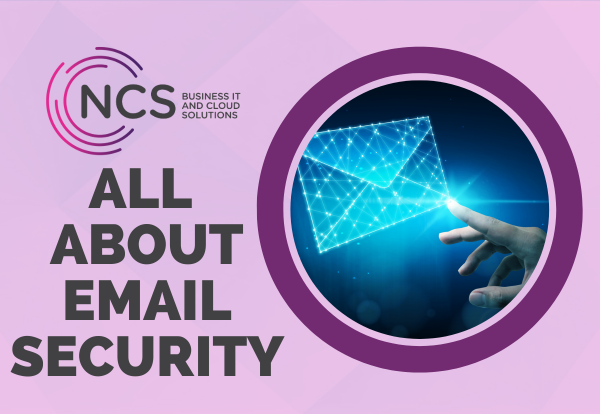All about Email Security
What is email security?
Email security is the practice of protecting email accounts and communications from unauthorised access, loss, or compromise.
Organisations can enhance their email security posture by establishing policies and using tools to protect against malicious threats such as malware, spam, and phishing attacks.
Cybercriminals target email because it is an easy entry point to other accounts and devices—and it relies in large part on human error. All it takes is one misguided click to cause a security crisis for an entire organisation.
Why is it important?
Email has been a primary communication tool in the workplace for more than two decades. More than 333 billion emails are sent and received daily worldwide—and employees get an average of 120 emails a day.
This spells opportunity for cybercriminals who use business email compromise attacks, malware, phishing campaigns, and a host of other methods to steal valuable information from businesses.
Most cyberattacks—94 percent—begin with a malicious email. The consequences can be severe, leading to significant financial, data, and reputational losses.
Here is a great video about email security from our partners Cisco >
What are the benefits of having email security in place?
Businesses of all sizes are realizing the importance of prioritising email security. An email security solution that safeguards employee communication and reduces cyberthreats is important because it helps to:
• Protect a company’s brand, reputation, and bottom line – email threats can lead to devastating costs, operational disruption, and other severe consequences.
• Enhance productivity – with a robust email security solution in place, businesses can reduce potential disruptions to operations and downtime because of a cyberattack. An effective solution helps security teams streamline response and stay ahead of increasingly sophisticated threats.
• Ensure compliance with data protection laws such as the General Data Protection Regulation (GDPR) and help circumvent the many intangible costs of a cyberattack such as business disruption, legal fees, regulatory fines.
What should we do to improve email security?
Best practices for email security should include:
• Educate employees with periodic training to minimize the risk of human error and ensure that employees—often considered a company’s first line of defence—understand the importance of email security.
• Invest in user awareness training so users can learn how to recognise the signs of a phishing attack and other indicators of malicious intent. Read more about phishing here >
• Upgrade to an email security solution that provides advanced threat protection.
• Implement multifactor authentication (MFA) to prevent account compromise. Asking users to provide more than one way to sign into accounts is an easy way to help secure business data. Read more about MFA here >
• Review protections against business email compromise attacks through methods like spoofing and impersonation.
• Move high-risk processes and transactions to more authenticated systems.
• Invest in email security technology systems such as DMARC.
To learn more about email security, get in touch with our Sales team.
Posted in News

